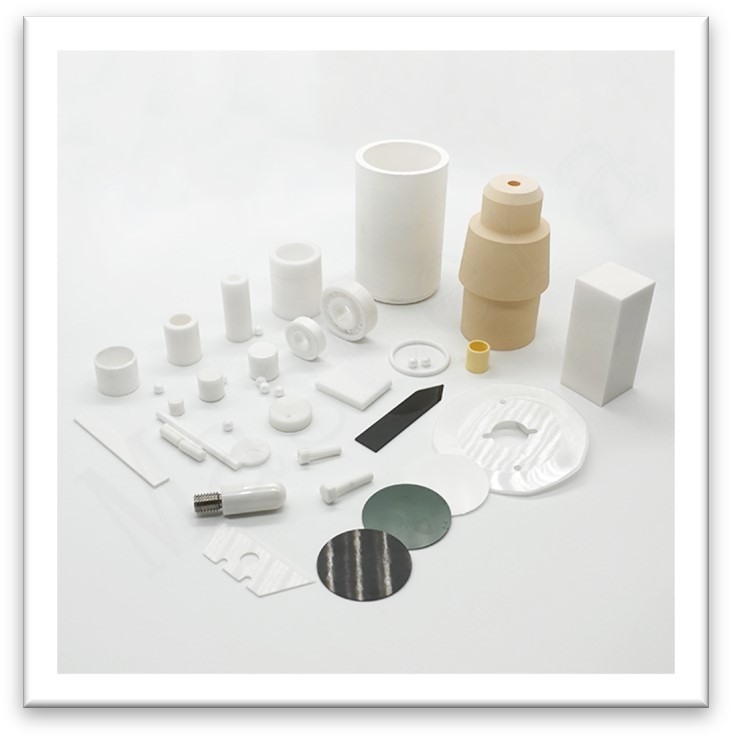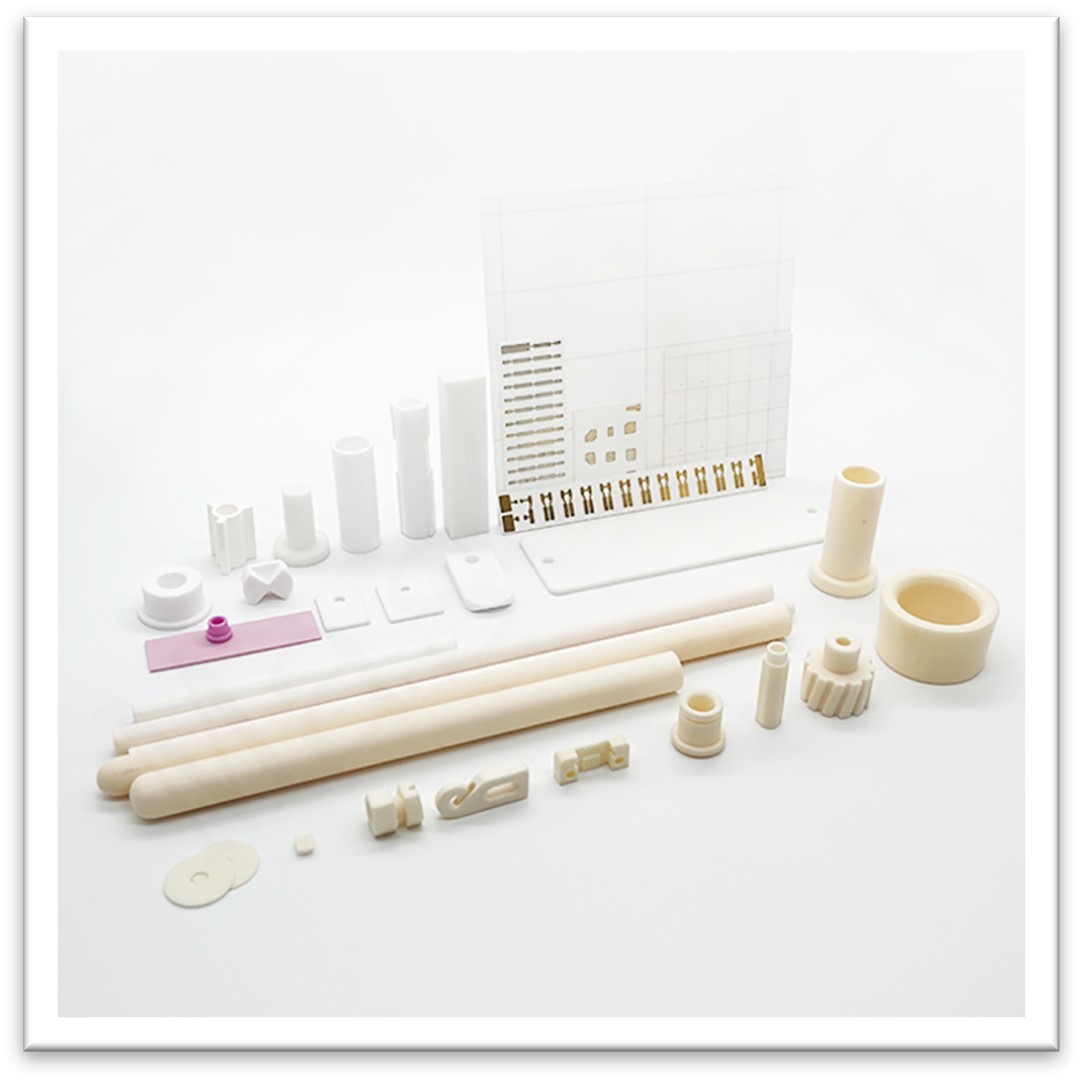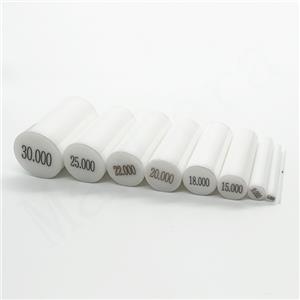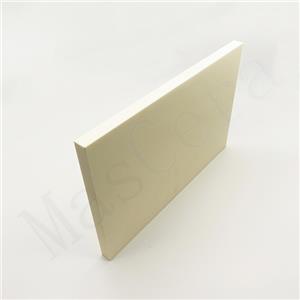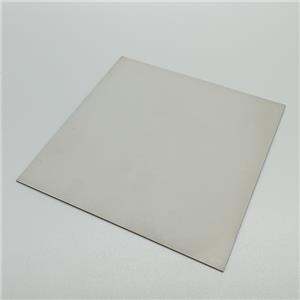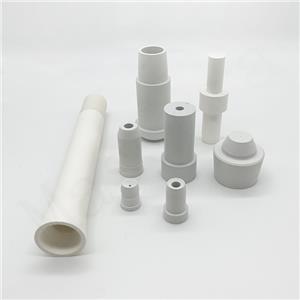Advanced Ceramic Preparation: Pros and Cons of Press Molding
Press molding (also known as die pressing or dry pressing) is a common method used in the preparation of advanced ceramics. This process involves mixing ceramic powders with organic or inorganic additives, then placing the mixture into specially designed molds for shaping under certain temperature and pressure conditions.
Press molding is widely used in various ceramic preparation fields, including structural ceramics, functional ceramics, and ceramic films. It offers high controllability, repeatability, and production efficiency, allowing for large-scale production, and thus plays a crucial role in advanced ceramic preparation. Additionally, press molding can be combined with other forming techniques (e.g., slip casting or plasma sintering) to achieve more diversified preparation needs.
1、Advantages of Press Molding in Advanced Ceramic Preparation
In the preparation of advanced ceramics, press molding offers many advantages, making it a widely used shaping method. For example:
(1) Precise control of shape and dimensions
Carefully designed and manufactured molds allow for complex geometric shapes and fine structures in ceramic products. This high precision and shape control make press molding especially suitable for advanced ceramic applications that require fine processing and high precision.
(2) High density and uniformity of ceramic products
In the press molding process, applying high pressure causes deformation and bonding between ceramic powder particles, resulting in high density in the molded body and reducing the formation of pores and defects. This helps improve the mechanical properties, chemical stability, and wear resistance of ceramic products.
(3) Suitable for mass production
Compared to other forming methods like slip casting or hot isostatic pressing, press molding offers faster shaping speed and higher production efficiency. This makes it an ideal choice for mass production of ceramic products, further reducing production costs and increasing efficiency.
(4) Suitable for various ceramic materials
Press molding can achieve high-quality shaping of various ceramic materials, including structural ceramics, functional ceramics, and ceramic films. Whether it is oxide ceramics, non-oxide ceramics, or composites, press molding can be used to prepare them effectively.
(5) High controllability and repeatability
By controlling pressing conditions (e.g., pressure, temperature, pressing speed), key parameters such as density, shape, and dimensions of the molded body can be precisely controlled, ensuring product consistency and quality stability.
(6) High flexibility and design freedom
With reasonable mold design, press molding can achieve ceramic products with various shapes and structures, including complex geometric shapes, internal channels, and thin-walled structures. This flexibility makes press molding very suitable for personalized customization and special requirements in advanced ceramic applications.
(7) Advantages in preparing fine structure and nanoscale ceramic materials
By selecting appropriate powders and process parameters, uniform dispersion and orientation of nanoparticles can be achieved, leading to ceramic products with nano-level structures. This is significant in advanced functional ceramic fields, such as sensors, catalysts, and energy materials.
(8) Automation and batch production
Due to the relatively simple process flow and high production efficiency of press molding, it can be combined with automated equipment and production lines for large-scale ceramic product production, improving production consistency, reducing labor costs, and meeting high-volume demands.
2、Disadvantages of Press Molding in Advanced Ceramic Preparation
(1) Challenges in preparing complex structures with high precision
Press molding can achieve a certain degree of complex structures, particularly for ceramic products with internal channels, irregular pores, or simple cavity structures. However, for very complex or highly intricate structures, press molding may face challenges. High-precision complex-shaped molds can be difficult to manufacture, especially for ceramic products with fine structures or internal channels.
(2) Mold wear and lifespan
Mold wear can lead to inconsistency in product dimensions or surface defects. Molds used in press molding are typically made from steel or hard alloy, but prolonged use can cause wear during the pressing process, resulting in loss of precision. Regular inspection and replacement of molds are necessary, which increases production costs and time.
(3) Internal stress and shrinkage
In the press molding process, internal stress and shrinkage may arise due to the pressing and demolding steps. These stresses and shrinkage can cause shape distortion, cracking, or internal defects in the molded body. Subsequent sintering or heat treatment steps are usually needed to eliminate or reduce internal stress.
(4) Material selection limitations
While press molding is suitable for many ceramic materials, specific materials such as nano ceramics or high-purity ceramics may require additional process control. These materials may have higher surface energy, smaller particle size, or higher reactivity, necessitating special powder processing measures to achieve good molding results.
Press molding methods continue to evolve with technological advancements. New mold materials and manufacturing technologies are being introduced to enhance mold lifespan and molding results. Furthermore, emerging press molding methods such as plasma molding and stereolithography molding are being researched and applied to meet higher levels of molding demands.
XIAMEN MASCERA TECHNOLOGY CO., LTD. is a reputable and reliable supplier specializing in manufacturing and sales of technical ceramic parts. We provide custom production and high precision machining for a wide series of high performance ceramic materials including alumina ceramic, zirconia ceramic, silicon nitride, silicon carbide, boron nitride, aluminum nitride and machinable glass ceramic. Currently, our ceramic parts can be found in many industries like mechanical, chemical, medical, semiconductor, vehicle, electronic, metallurgy etc. Our mission is to provide the best quality ceramic parts for global users and it is a big pleasure to see our ceramic parts work efficiently in customers' specific applications. We can cooperate on both prototype and mass production, welcome to contact us if you have demands.

